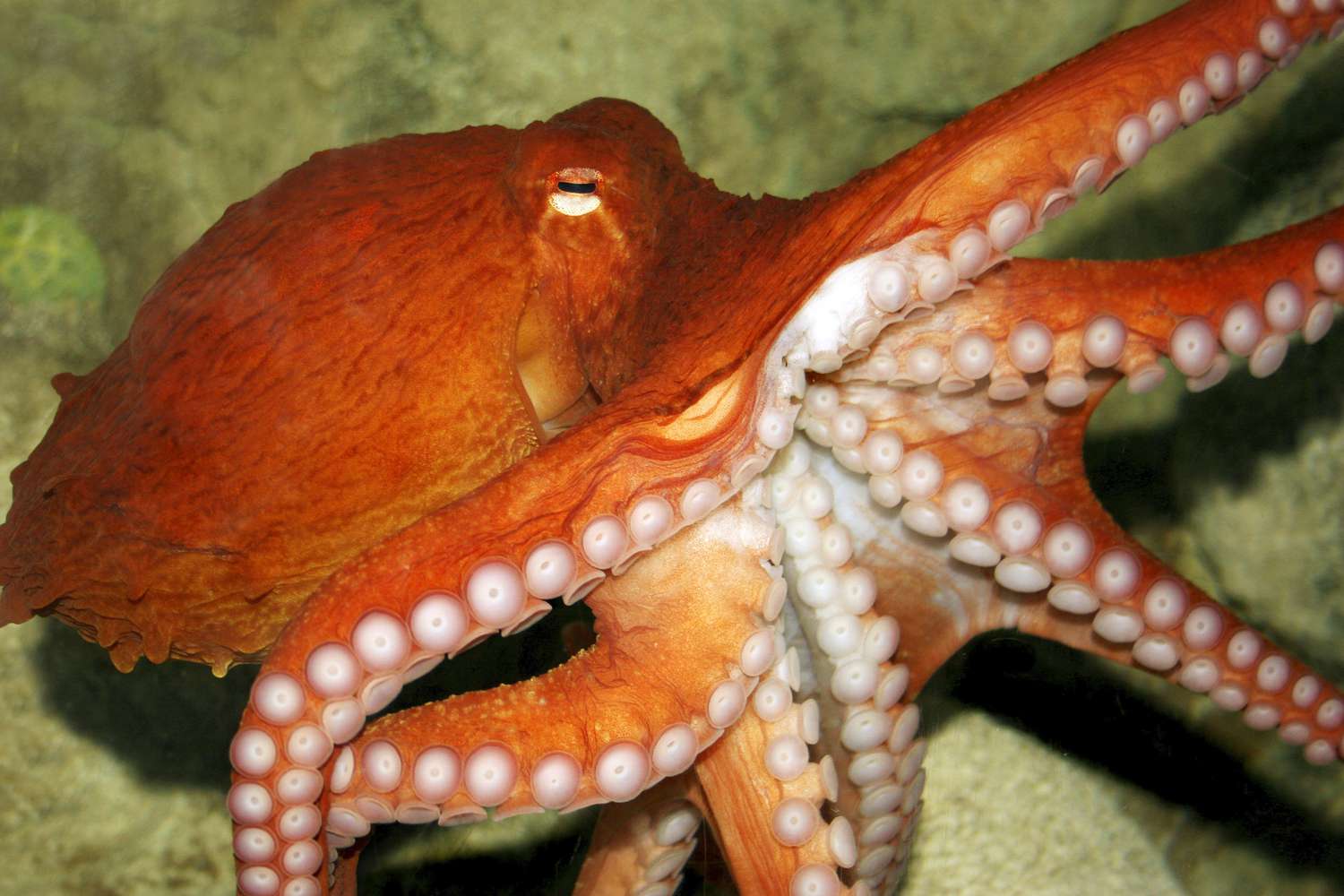
Ever wondered about the mysterious world of octopuses? These sea creatures are more fascinating than you might think! From their incredible intelligence to their unique physical abilities, octopuses have captured the imagination of many. But how much do you really know about them? You're about to dive into 20 mind-blowing facts about octopuses that will leave you in awe. Whether you're a marine biology enthusiast or just curious about the wonders of the ocean, these facts will surely pique your interest. So, buckle up and get ready to be amazed by the incredible world of these eight-armed marvels. Ready to have your mind blown? Let's get started!
Key Takeaways:
- Octopuses are incredibly intelligent and fascinating creatures with three hearts, nine brains, and the ability to change color and texture for camouflage. They play a crucial role in the ocean's food web and inspire scientific research and robotics.
- Despite their solitary nature, octopuses exhibit social behavior and face threats from habitat destruction and climate change. Their unique physiology and problem-solving abilities offer valuable insights into the evolution of cognition and neural complexity.
Understanding Octopuses: A Brief Overview
Octopuses are among the most fascinating creatures in the ocean. With their eight arms, incredible intelligence, and ability to change color, they capture our imagination and curiosity. Before diving into the astonishing facts about these cephalopods, let's get a basic understanding of what makes them so unique.
Octopuses belong to the class Cephalopoda, which also includes squids and cuttlefish. They are known for their complex nervous systems, highly developed eyesight, and an uncanny ability to blend into their surroundings. Now, let's explore some mind-blowing facts about these intriguing sea dwellers.
Octopus Intelligence and Behavior
-
Octopuses have three hearts. Two pump blood to the gills, while the third pumps it to the rest of the body. This cardiovascular complexity supports their active hunting lifestyle.
-
They possess nine brains. One central brain controls the nervous system, while each of the eight arms has a mini-brain that allows it to act independently. This neural setup enables them to perform multiple tasks simultaneously, such as exploring their environment and manipulating objects.
-
Known for their Houdini-like escape skills, octopuses can squeeze through incredibly small spaces. They can fit through any gap larger than their beak, the only hard part of their body.
-
Octopuses are masters of camouflage. They can change not only their color but also their texture in seconds, mimicking their surroundings to evade predators or sneak up on prey.
The Mysterious Life of Octopuses
-
The lifespan of an octopus is relatively short. Some species live for as little as six months, while larger ones, like the giant Pacific octopus, can live up to five years. Their lifecycle is often concluded with the act of reproduction, after which they usually die.
-
Octopuses are solitary creatures. They spend most of their life alone, coming together only to mate. After laying eggs, female octopuses dedicate themselves to protecting their offspring, often leading to their own demise from starvation.
-
These creatures have a remarkable ability to regenerate lost limbs, a handy skill for escaping predators' clutches.
Octopus Diet and Hunting Techniques
-
Octopuses are carnivores, feeding on a variety of sea creatures. Their diet includes crabs, shrimps, and small fish. They use their arms to crawl along the sea floor, pounce on their prey, and pull it towards their mouth.
-
They employ an ingenious hunting strategy involving shooting a jet of water to uncover hiding prey or to disorient them before capture.
-
Venom is another tool in their arsenal. All octopuses are venomous, but only the blue-ringed octopuses are known to be deadly to humans. Their venom contains neurotoxins effective in paralyzing prey and deterring predators.
Fascinating Octopus Reproduction and Development
-
Octopus reproduction involves a unique process where the male uses a specialized arm called the hectocotylus to transfer sperm packets to the female. After fertilization, the female lays thousands of eggs, which she meticulously cleans and guards until they hatch.
-
Baby octopuses, or larvae, are born fully equipped with the ability to hunt and change color. They spend the initial part of their lives drifting in the plankton layer of the ocean before settling on the ocean floor to begin their solitary life.
Conservation and the Future of Octopuses
-
Despite their adaptability, octopuses face threats from habitat destruction, pollution, and overfishing. Conservation efforts are crucial to ensure these remarkable creatures continue to thrive in our oceans.
-
Recent studies suggest octopuses might be building "octopus cities," where they live in close proximity to one another, challenging previous notions of their solitary nature. This social behavior indicates there's still much to learn about these enigmatic creatures.
-
Climate change poses a significant threat to octopus habitats, affecting their food supply and survival. As ocean temperatures rise, researchers are closely monitoring how these changes impact octopus populations worldwide.
Octopus Influence in Culture and Research
-
Throughout history, octopuses have inspired myths, legends, and art across various cultures. Their mysterious nature and peculiar appearance have made them a subject of fascination and sometimes fear.
-
In scientific research, octopuses are studied for their unique physiology and behavior. Their remarkable intelligence and problem-solving abilities offer insights into the evolution of cognition and neural complexity.
-
The octopus's ability to regenerate limbs is of particular interest to scientists working in regenerative medicine, hoping to apply these findings to human health.
-
With their soft, malleable bodies, octopuses have also influenced the field of robotics. Researchers are developing soft, flexible robots that mimic the octopus's movements, opening new possibilities in medical and industrial applications.
-
Finally, octopuses play a vital role in the marine ecosystem. As both predators and prey, they are an integral part of the ocean's food web, contributing to its overall health and balance.
A Peek into the Octopus's World
Octopuses are truly fascinating creatures, offering a glimpse into the complexity and wonder of marine life. From their incredible intelligence to their unique physical abilities, these animals continue to amaze scientists and ocean lovers alike. Whether it's their skill in camouflage, their use of tools, or their capacity for problem-solving, octopuses have shown us time and again that they are among the most intriguing inhabitants of the ocean. As we learn more about them, we not only gain insight into their world but also develop a greater appreciation for the diversity and resilience of life on our planet. So, next time you're diving into the depths of the sea or simply watching a documentary, remember these remarkable beings and the many secrets they still hold beneath the waves.
Frequently Asked Questions
Was this page helpful?
Our commitment to delivering trustworthy and engaging content is at the heart of what we do. Each fact on our site is contributed by real users like you, bringing a wealth of diverse insights and information. To ensure the highest standards of accuracy and reliability, our dedicated editors meticulously review each submission. This process guarantees that the facts we share are not only fascinating but also credible. Trust in our commitment to quality and authenticity as you explore and learn with us.


